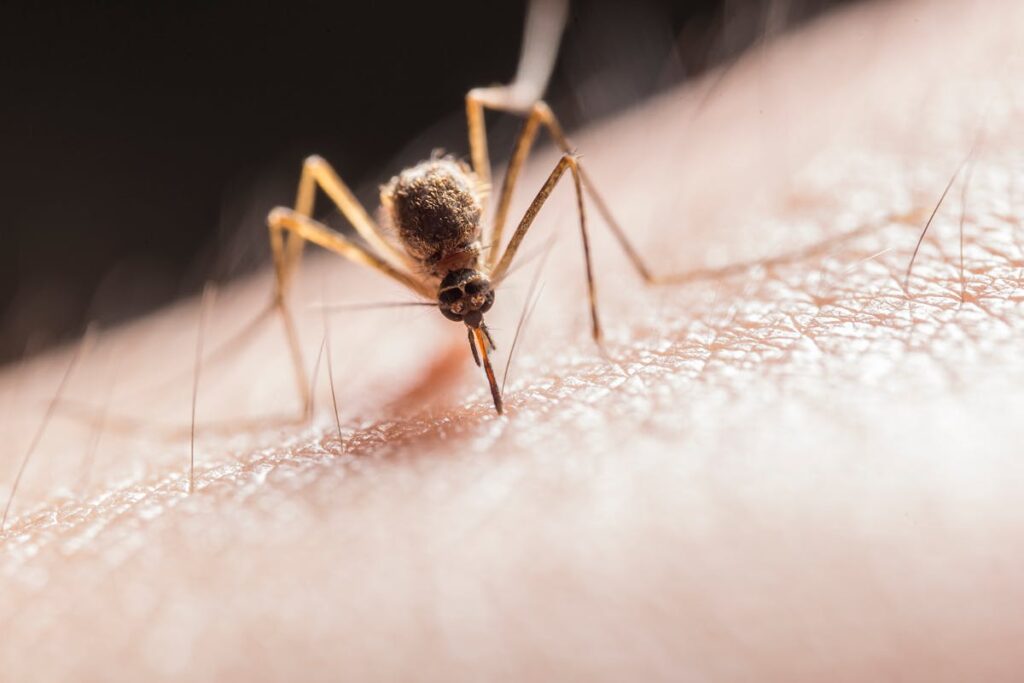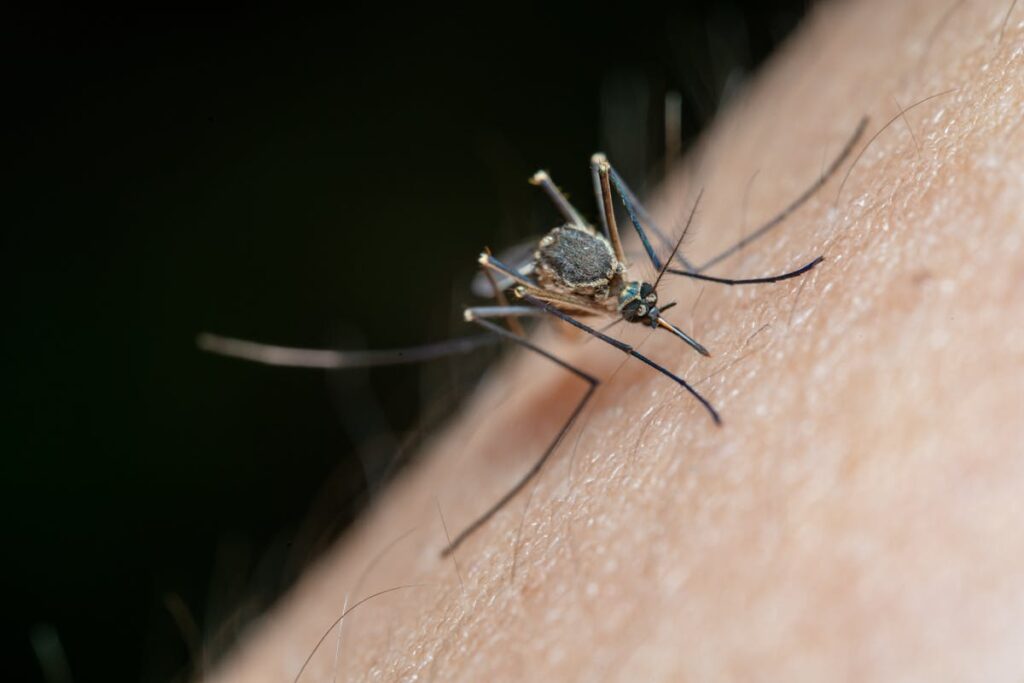Massachusetts faces a serious health threat as ten counties have been identified at high or critical risk from the deadly mosquito virus, Eastern Equine Encephalitis (EEE), also known as “Triple E.” This rare but potentially fatal virus has prompted state health officials to issue warnings and take extensive preventative measures to protect residents from this deadly mosquito virus in Massachusetts.
The Dangers of EEE: A Deadly Mosquito Virus
Eastern Equine Encephalitis, a dangerous mosquito virus in Massachusetts, is one of the most severe mosquito-borne illnesses in the United States. There are no vaccines or specific treatments available for this deadly mosquito virus. According to the Centers for Disease Control and Prevention (CDC), about 30% of people infected with EEE die from the disease, and many survivors suffer from long-term neurological problems. This virus is transmitted to humans through the bite of an infected mosquito, making it a critical public health concern.

Recent Developments in Massachusetts
On August 16, the Massachusetts Department of Public Health (DPH) confirmed this year’s first human case of EEE in the state. The patient, a man in his 80s from Oxford in Worcester County, was exposed to the virus, raising concerns about the spread of this deadly mosquito virus in Massachusetts. This case came just over a month after the first EEE-positive mosquito samples were found in the state.
In response to the threat posed by this mosquito virus, local officials in Oxford have implemented an outdoor curfew during the hours when mosquitoes are most active. This Massachusetts curfew for mosquitoes aims to reduce the risk of further infections. Similarly, in Plymouth, located about 40 miles south of Boston, public parks and fields have been closed from dusk until dawn after a horse in the town was diagnosed with EEE, further highlighting the high risk of the EEE virus in Massachusetts.
Mosquito and tick bites can cause serious illnesses like EEE and Lyme disease. When outdoors, use EPA-approved repellent, applied slowly and evenly to the face, neck, arms & legs. When possible, wear full-length protective clothing. More info: https://t.co/DD6BYzyvj2. pic.twitter.com/84eMaxr1Kg
— Mass. Public Health (@MassDPH) August 25, 2024
Statewide Preventative Measures
The Massachusetts DPH has announced plans to conduct aerial spraying of pesticides in several communities within Plymouth County and truck-mounted spraying in parts of Worcester County to combat this deadly mosquito virus in Massachusetts. These efforts are scheduled to take place during the week of August 26 and are intended to reduce the mosquito population and the risk of EEE transmission.
The communities included in the aerial spray zone for this Massachusetts mosquito virus are Carver, Halifax, Kingston, Middleborough, Plymouth, Plympton, Rochester, and Wareham. The truck spray zone covers Douglas, Dudley, Oxford, Sutton, and Uxbridge.
What Residents Should Do
Given the elevated risk from this deadly mosquito virus in Massachusetts, state health officials are urging residents in affected areas to take several precautions:
- Wear Protective Clothing: Cover as much skin as possible with long sleeves and pants to protect against the deadly mosquitoes in Massachusetts.
- Use Mosquito Repellent: Apply EPA-approved mosquito repellents to reduce the chances of being bitten and contracting the EEE virus in Massachusetts.
- Reschedule Outdoor Activities: If possible, avoid outdoor activities during peak mosquito activity times, which are from dusk to dawn.
- Eliminate Standing Water: Mosquitoes lay eggs in standing water, so it’s important to drain any water collected in containers around your home.
- Install or Repair Screens: Ensure that all windows and doors have screens to prevent mosquitoes from entering your home and spreading the mosquito virus in Massachusetts.
Expert Insights
Massachusetts Department of Public Health Commissioner Robbie Goldstein emphasized the seriousness of the situation, noting that the state has not seen an outbreak of this deadly mosquito virus in Massachusetts for four years. “This year’s outbreak and activity raise the risk for communities in parts of the state. We need to use all our available tools to reduce risk and protect our communities. We are asking everyone to do their part,” Goldstein said in a statement.
Health Advisory During Spraying
For residents in the spraying zones, the DPH advises staying indoors during pesticide applications, particularly for those with known sensitivities to chemicals or existing respiratory conditions like asthma. The pesticide being used, Anvil 10+10, is registered with the Environmental Protection Agency (EPA) and is commonly used in mosquito control efforts to combat the spread of the EEE virus in Massachusetts.

Understanding the Symptoms of Eastern Equine Encephalitis (EEE)
The first symptoms of this deadly mosquito virus in Massachusetts typically appear 3-10 days after being bitten by an infected mosquito. Symptoms include a high fever (often between 103-106°F), a stiff neck, headache, and a general lack of energy. The most serious complication is encephalitis, an inflammation and swelling of the brain, which can lead to rapid deterioration in a patient’s condition. In severe cases, patients may fall into a coma within a week of symptoms appearing.
EEE Beyond Massachusetts
While the focus is currently on Massachusetts, the risk of EEE, a deadly mosquito virus, is not confined to the state. In New York, for instance, the Department of Health recently reported cases of EEE in horses across several counties, including Orange, Saint Lawrence, Madison, Oneida, Ulster, Cayuga, Wayne, and Washington. However, there have been no confirmed human cases of this mosquito virus in New York as of the latest reports. Health officials have reassured the public that infected horses cannot transmit the virus to humans or other horses.
Growing Concern Over West Nile Virus
In addition to the concerns about the EEE virus in Massachusetts, there is increasing worry about the spread of West Nile Virus (WNV), another mosquito-borne disease. WNV is currently the leading mosquito-borne illness in the continental United States and recently led to the hospitalization of former NIAID director Anthony Fauci, who is now recovering at home.
Final Thoughts
As Massachusetts battles the spread of the deadly mosquito virus, EEE, residents must stay informed and take necessary precautions. The state is implementing significant measures to control the mosquito population and reduce the risk of infection. However, individual actions, such as using repellent, wearing protective clothing, and avoiding outdoor activities during peak mosquito hours, are essential in preventing the spread of this dangerous mosquito virus in Massachusetts.
By staying vigilant and following these guidelines, residents can help protect themselves and their communities from the potentially deadly impact of this mosquito virus in Massachusetts.
